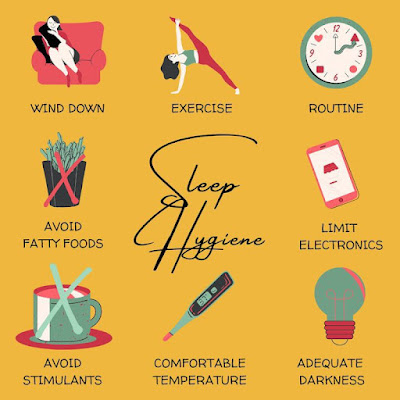Introduction:
In our fast-paced world, sleep often takes a backseat to work, social commitments, and other activities. However, sleep is not a luxury but a vital necessity for our overall health and well-being. In this blog, we'll explore the numerous benefits of quality sleep and provide practical tips to help you prioritize and improve your sleep patterns.
1. Understanding the Importance of Sleep:
Sleep is not just downtime; it's a dynamic process that allows our bodies to repair, regenerate, and rejuvenate. During sleep, the brain consolidates memories, the immune system strengthens, and the body repairs tissues and muscles. It's essential for cognitive function, mood regulation, and physical health.
2. The Health Benefits of Sleep:
Adequate sleep has a profound impact on various aspects of our health:
- Cognitive function: Improved memory, concentration, and problem-solving skills.
- Emotional well-being: Reduced risk of anxiety and depression.
- Physical health: Lowered risk of chronic diseases like diabetes, heart disease, and obesity.
- Immune system support: A stronger defense against illnesses.
- Weight management: Better appetite regulation, reducing the risk of weight gain.
3. How Much Sleep Do You Need?
The recommended amount of sleep varies by age:
- Adults: 7-9 hours per night
- Teenagers: 8-10 hours per night
- School-age children: 9-12 hours per night
- Preschoolers: 10-13 hours per night
4. Tips for Better Sleep:
Improving your sleep quality can have a profound impact on your health:
- Create a sleep-conducive environment: A dark, quiet, and cool room is ideal.
- Stick to a schedule: Go to bed and wake up at the same time every day, even on weekends.
- Limit screen time: The blue light from screens can disrupt your sleep cycle; avoid screens at least an hour before bedtime.
- Watch your diet: Avoid heavy meals, caffeine, and alcohol close to bedtime.
- Stay active: Regular exercise can promote better sleep, but avoid intense workouts close to bedtime.
5. Seeking Help:
If you're consistently struggling with sleep issues, consider seeking help from a healthcare professional. Conditions like sleep apnea, insomnia, and restless leg syndrome can significantly impact your sleep quality and require specialized treatment.
Conclusion
Sleep is not an indulgence; it's a fundamental pillar of good health. Prioritizing quality sleep can improve your cognitive function, emotional well-being, and physical health. By understanding the importance of sleep, adhering to a consistent sleep schedule, and adopting healthy sleep habits, you can harness the incredible power of sleep to enhance your overall well-being. Sweet dreams lead to a healthier you!



0 Comments